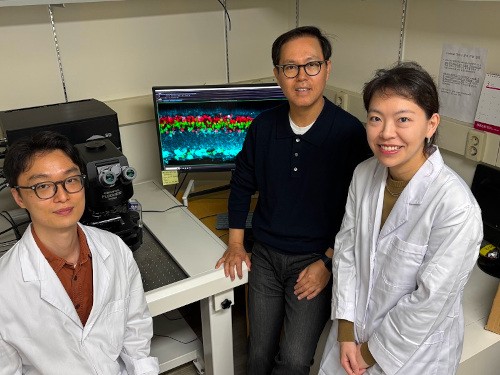Industry News
Researchers Restore Vision in Mice, Offering Hope for Millions with Retinal Diseases
 Researchers at the Korea Advanced Institute of Science and Technology (KAIST) have successfully developed a novel treatment that can reverse vision loss in mammals by regenerating damaged retinal nerves.
Researchers at the Korea Advanced Institute of Science and Technology (KAIST) have successfully developed a novel treatment that can reverse vision loss in mammals by regenerating damaged retinal nerves.
The breakthrough comes from a team led by Professor Jin Woo Kim of the Department of Biological Sciences, who announced that they had restored vision in disease-model mice by targeting a protein known to block retinal regeneration. The findings were published on March 25 in Nature Communications and represent the first documented case of long-term neural regeneration in mammalian retinas.
Over 300 million people worldwide are at risk of vision loss due to degenerative retinal diseases such as retinitis pigmentosa and age-related macular degeneration. While existing treatments have managed to slow disease progression, none have succeeded in restoring lost vision until now.
The KAIST team identified the protein PROX1 (prospero homeobox 1) as a key inhibitor of retinal regeneration in mammals. Unlike cold-blooded animals like fish, which can regenerate retinal neurons through Müller glia cells, mammals suffer permanent vision loss because their Müller glia fail to regenerate. The researchers discovered that PROX1 accumulates in these glial cells after retinal injury, preventing them from converting into regenerative progenitor cells.
Using an antibody developed by biotech startup Celliaz Inc., a company founded out of Professor Kim’s lab, the team was able to block extracellular PROX1 from entering Müller glia in mice. When delivered to mice with retinitis pigmentosa, this antibody therapy not only triggered significant neural regeneration but also restored visual function that lasted for over six months.
In addition to the antibody, researchers also tested a gene therapy approach by delivering the antibody’s gene directly into the eye, enabling the retina to continue producing the regenerative factor autonomously. Both strategies proved successful in reactivating retinal repair and restoring sight.
Celliaz Inc. is now developing the therapy for a range of degenerative eye conditions with no current cure. The company aims to enter clinical trials by 2028.
The study was co-led by Dr. Eun Jung Lee of Celliaz Inc. and Museong Kim, a Ph.D. candidate at KAIST. The paper, titled Restoration of retinal regenerative potential of Müller glia by disrupting intercellular Prox1 transfer, is available at Nature Communications (DOI: 10.1038/s41467-025-58290-8).
Dr. Eun Jung Lee stated, "We are about completing the optimization of the PROX1-neutralizing antibody (CLZ001) and move to preclinical studies before administering it to retinal disease patients. Our goal is to provide a solution for patients at risk of blindness who currently lack proper treatment options."
As populations age and retinal diseases become increasingly prevalent, this breakthrough may signal a transformative shift in the fight against blindness bringing long-awaited hope to millions of patients worldwide.



